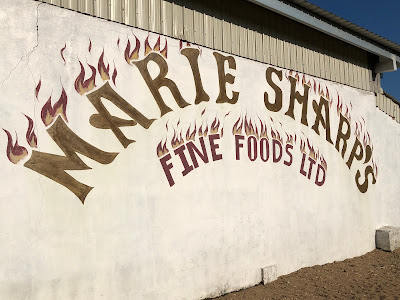There is less than two weeks until the journey to Belize starts. I could not be more excited for the trip at this point, thanks to the teachers and amazing students I will be traveling with. As a class there as been so much going on and being learned in just a three hour time slot every Monday night. There has been a guest speakers, one named Abdur and another speaker named Dr. David Webster. There are class readings that have been assigned through the semester to accompany the knowledge of our speakers. I am still currently reading the second book,
The Last Flight of the Scarlet Macaw, but finished the first book,
Understanding Belize: A Historical Guide, which had much to offer about not only the history of Belize, but the culture as well. Along with the two books to read, there has been many class engagement activities like the culture simulation that has stuck with me on how people from different cultures come across to one another.
Abdur was the first speaker in our classroom. He engaged the class in a conversation about sincere and genuine curiosity. He talked about other cultures and how having a sincere and genuine curiosity about the other culture that you are dealing with is important so you can understand the other culture better, and learn how the culture works the way it does, rather than become upset by actions of others.
Dr. David Webster was the next speaker to come visit our class. He is an Anthropologist working here at Penn State. Dr.Webster talked to the class about the Mayan culture and some of his work at the temples. Through his, and other's work, the Maya culture has been shown on temples and statues to have worshipped corn. Maize was a big part of the Mayan culture and their kings even had names that involved maize.

The book
Understanding Belize gave a lot of background context that showed me how the country has come to be what it is today. The book explains how the country evolved, between the British Honduras and hierarchy in the country to the way the government has changed to todays system. The books explains many aspects of the economy along these periods of time, like the export of wood products, sugar cane and other foods.
The cultural simulation was one of many engagement activities that have been incorporated into the class. I have traveled before, but usually to places where others know that I am a tourist, or the place has similar culture to my own. I tried to be respectful of other cultures, but being a tourist that did not do a full search into the country and their culture, I did not know what was and was not accepted. It never crossed my mind of I was even being disrespectful or not. The only times I can think of any backlash from differences is when I went to Ecuador with a group called VESA.
In Ecuador, I knocked on a door to a hostel, a wooden door. I never thought any different of it, we were supposed to ring a bell, I did, but when no one came to the door I thought the bell had become broken, and I knocked. The owner of the hostel came to the door yelling at me for knocking. It is hard to tell if that was part of the culture to not knock or if it was his prized door. Either way, the simulation showed me how you must be observant and decide if it is a cultural difference or a personal difference.
Reflection after any activity may lead to a different thinking of the occurrence. The tour guide on the VESA trip told myself and a group of two other girls that with the next group he wanted to have someone climb up the side of a small cliff and carve VESA into the cliff where there had been a spot cleared by others, as well as signed by others. I said why not now, and climbed up to carve VESA into the side of the stone. He acted as if I was crazy, but I did not see the difference between what the next group could do or what I could do. Now looking back, he might have meant for one of the guys from the next group to climb up and carve the project group name, it might have not been my place in the culture to do such a thing.







